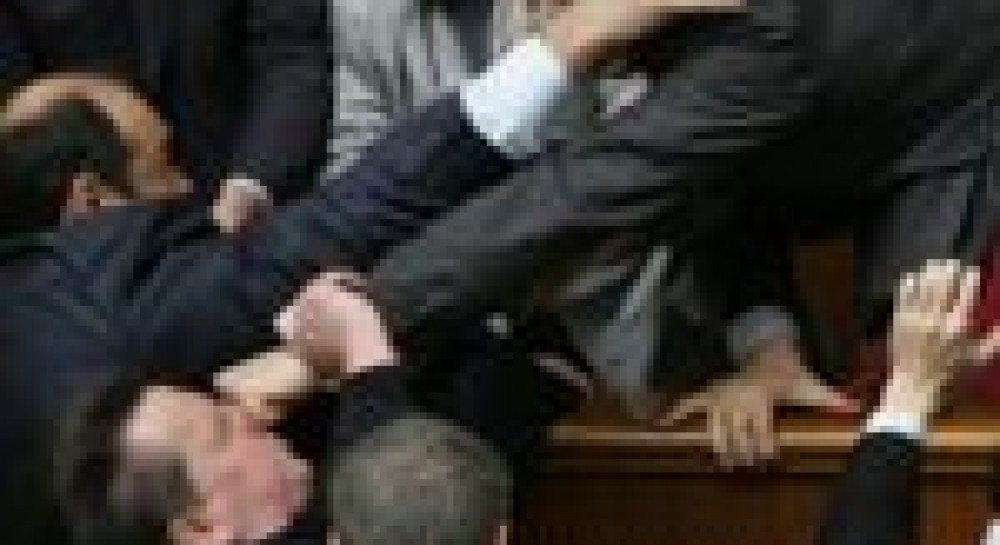
Battle lines drawn over Ukraine's strategic direction
Is it to be a nation that leans towards the West, with, for example, serious aspirations to Nato membership, as the 2004 Orange Revolution seemed to suggest? Or is it going to rapidly solidify its privileged ties with Moscow as...
Eggs and smoke bombs seem to be the weapons of choice but disturbances in Ukraine`s parliament are just the latest stage in an unfolding battle for the country`s future strategic direction, according to BBC.
Is it to be a nation that leans towards the West, with, for example, serious aspirations to Nato membership, as the 2004 Orange Revolution seemed to suggest?
Or is it going to rapidly solidify its privileged ties with Moscow as the recent base agreement signed by the pro-Russian President, Viktor Yanukovych, would indicate?
Indeed the Russians want to go much further, much faster, with proposals effectively to merge the two countries` nuclear industries and elements of their aviation industries too.
Policy reversal
The Ukrainian and Russian presidents have had a series of meetings over recent months since President Yanukovych`s inauguration.
These have produced two tangible agreements: one extending Russia`s lease on the Sevastopol naval base for 25 years - with further extensions likely.
This was a reversal of the policy of the previous Ukrainian president, Viktor Yushchenko, who wanted to eject the Russians from the base on Ukrainian soil.
Sevastopol has been a Russian naval base since Tsarist days and into the Soviet Union. It was the focus of the Crimea War between Russia and an alliance of Britain and France in the 1850s.
The strategic significance of the Black Sea fleet has waned since Soviet days, but it remains an important means of projecting Russia`s influence in the region.
Georgia, for example, a close friend of the previous Ukrainian government, is watching the rapprochement between Kiev and Moscow with some alarm.
In return for the new basing agreement, Ukraine was granted a significant discount on gas prices from Russia; a deal of some importance given the country`s precarious finances.
Political divisions
All this marks a renewed effort by Moscow to use energy politics as a tool of strategic influence.
The message is going out loud and clear; friendship with Russia has tangible benefits.
It is a message that Moscow wants to project not just to the former Soviet states of its "near abroad". It hopes the message will have a resonance amongst Russian gas customers in western Europe too.
For Moscow, the Ukrainian deal is only one aspect of a new activism in Russia`s foreign policy.
The recent upheavals in Kyrgyzstan where an unpopular government was removed by a wave of popular protest prompted comparison with Ukraine`s own Orange Revolution in 2004. But with a key difference.
This time it was Moscow and not the West that seems to have been encouraging the protest movement with the aim of removing a regime with which the Russian government had lost patience.
However, in Ukraine the new deal with Moscow has only deepened the entrenched political divisions in the country where there are long-standing differences of opinion about the extent of Kiev`s orientation towards Moscow.

